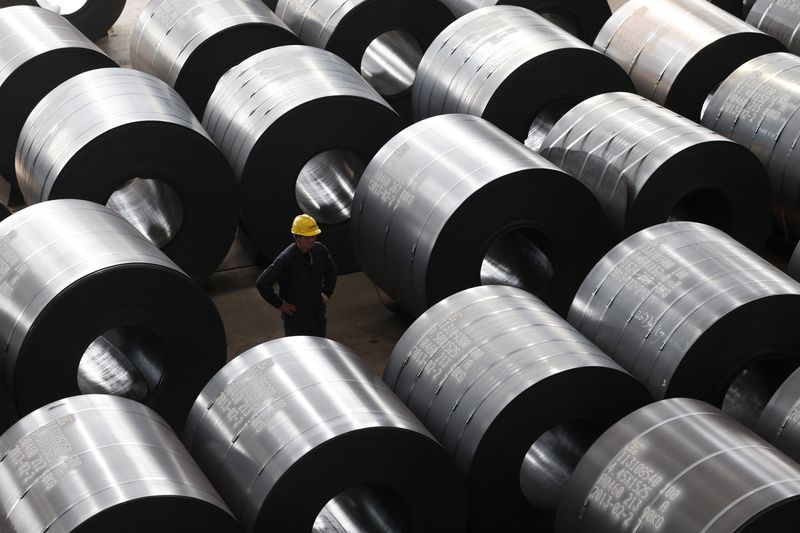* Quotas to cut imports more than tariffs at current U.S. prices
* EU expected to impose safeguards on steel imports by end-June
By Maytaal Angel
LONDON, May 25 (Reuters) - U.S. government moves to negotiate steel import quotas with its allies in exchange for tariff exemptions could leave them worse off than countries who have to pay the levy.
Washington set tariffs of 25 percent on U.S. steel imports in March, but has since granted the European Union, Canada and Mexico temporary exemptions until June 1.
It has also agreed permanent exemptions for Brazil, Australia, Argentina and South Korea in return for quotas. Korea, for example, agreed to quotas restricting its steel sales to the United States by 30 percent, with different quotas for different products, some of which traders say are nearly full. Customs and Border Protection data corroborates this, showing South Korea has already used its quota this year for nine different steel products. https://www.cbp.gov/trade/quota/bulletins/qb-18-118-steel-mill-articles
Steel markets expect exempted countries like the EU, Canada and Mexico to get a tariff deal similar to the South Korean one, meaning quotas for some products are likely to be used up in the first half, a U.S.-based trader said.
Meanwhile for countries which are not exempt, the price they can fetch exporting to the U.S. - where steel costs much more than in the rest of the world - makes trade profitable even with a 25 percent tariff.
"The tariff turns out to be the lesser problem (for U.S. importers). There could actually be another price spike once the market realises what these quotas actually mean," said the U.S.-based trader said.
Jefferies research says the premium for U.S. hot rolled coil versus a global basket was $255 a tonne in late April, more than twice the historical average of $117.
The Peterson Institute for International Economics, a Washington-based think tank, says countries exempted from tariffs made up two-thirds of the 34.6 million tonnes worth of U.S. steel imports last year.
"Assuming a quota system is implemented on select countries, supply-side constraints could develop (in certain products) in the second half as full year quotas are disproportionately utilised in the first half," Jefferies analyst Seth Rosenfeld said.
This would support U.S. steel prices HRCc1 , which have already surged some 80 percent since Trump announced his tariff investigation last year.
In the EU, where steel prices ST-MBEUDNHRC-MB ST-MBEDSHRC-MB have slipped some 4 percent this quarter after imports surged 8 percent last quarter, traders expect swift action to protect the domestic market.
Market sources say the world's largest steel importer after the United States will impose 'safeguard' quotas on steel imports by the end of June or earlier, especially if the U.S. slaps quotas on EU steel.
Safeguards are allowed under World Trade Organisation rules to defend against a sudden import surge. The EU wants to use them to protect against steel meant for the U.S. market ending up in the EU.
"The problem is we don't know how those quotas will be distributed so (we) don't feel confident importing steel from outside the EU," an EU-based steel trader said.
The EU said this week that even if European producers escape tariffs on June 1, they will likely face quotas. Poland said Washington wants a 10 pct cut on EU steel imports.
